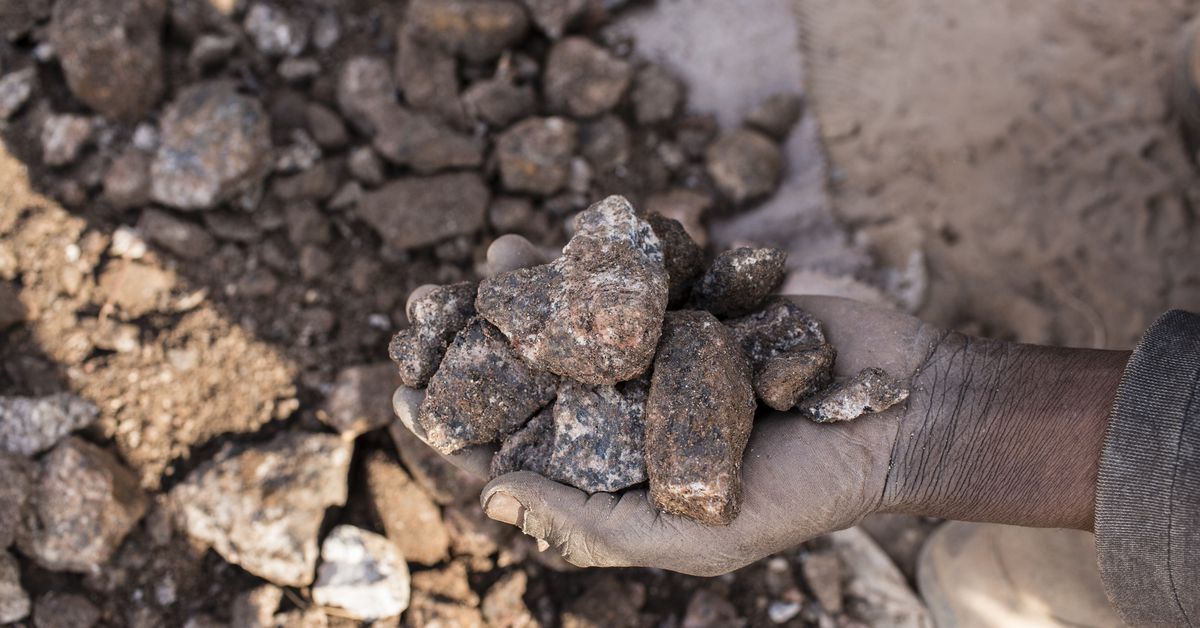
The solar power and electric vehicles we need to stop the climate crisis pose a different threat to people and the environment: a boom in mining. Moving away from fossil fuels depends on tech like batteries and solar panels that can provide alternative forms of energy. But digging up the raw materials can undermine human rights and destroy fragile ecosystems. As governments and industries try to tackle climate change by building up renewable energy, they’ll need to consider other problems unearthed in the process.
Policy experts writing in the journal Science warn that a more sustainable future could hinge on how leaders manage the demand for metals and minerals, including cobalt and lithium needed for rechargeable batteries.
“Mining, metals, and materials extraction is the hidden foundation of the low-carbon transition. But it is far too dirty, dangerous, and damaging to continue on its current trajectory,” Benjamin Sovacool, a lead author of the paper and professor of energy policy at the University of Sussex, said in a statement.
Batteries, for example, are a big source of both optimism and frustration when it comes to green energy. They power cleaner vehicles and store energy so that solar and wind power are still accessible even in unfavorable weather. The downside is that those batteries are made with cobalt. Most of the world’s cobalt comes from the Democratic Republic of Congo, where children work in mines to meet growing demand for the metal. Apple, Google, Microsoft, Dell, and Tesla have all been named defendants in a suit filed in December over the deaths of children working in cobalt mines.
Cobalt production connected to low-carbon energy sources is expected to balloon by 585 percent by 2050, according to The World Bank. Lithium production, also needed for batteries, could grow by a whopping 965 percent by 2050. The United Nations Intergovernmental Panel on Climate Change warns that the world needs to eliminate greenhouse gas emissions by roughly 2050 to avoid catastrophic effects of climate change.
“The low carbon society that we think we’re going to have in 2050 needs all of this stuff. Yet currently we’re at risk of securing that stuff only at the expense of the poorest and most vulnerable in society,” Sovacool says. He tells The Verge that seeing the effects of cobalt mining in the Congo firsthand came as shock despite the previous research he’d done. He recalls a church pastor who had dug up the floor of his church in search of cobalt, and workers digging mines with their bare hands as part of the “mining bonanza.”
There are no easy answers to finding less harmful ways to dig up the things we need. One emerging option is deep-sea mining. That would open up new sources of cobalt, but could destroy ecosystems that scientists have only just begun to explore. The costs and benefits of each new project will need to be weighed on a case-by-case basis, according to Sovacool. His article in Science suggests that countries should be thinking about the supply chain for minerals in their climate plans and in global agreements like the Paris climate accord.
Climate change is the result of pushing technological progress without regard for the harms caused by the fossil fuels on which it depends. A green economy, even if it is wind-powered, won’t come out of thin air. Without thinking about what’s sacrificed to build that future, history may repeat itself.
https://www.theverge.com/2020/1/2/21047315/climate-change-tech-batteries-cobalt-mining-human-rights

